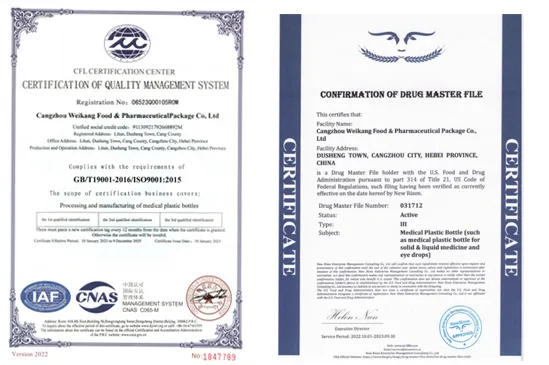Essential Tools for Your Chemistry and Biology Laboratory Setup
Exploring Science Lab Accessories Essential Tools for Experimentation
In the world of scientific research and experimentation, the right tools can make all the difference. Science lab accessories are vital to conducting experiments safely and effectively, whether in educational settings, research institutions, or industrial laboratories. This article will delve into various science lab accessories that enhance the scientific process, ensuring accuracy and safety.
1. Personal Protective Equipment (PPE)
Safety is paramount in every laboratory environment. Personal Protective Equipment (PPE) includes items such as lab coats, gloves, goggles, and face shields. Lab coats protect the skin and clothing from spills and splashes of hazardous materials. Gloves, typically made of latex or nitrile, prevent skin contact with harmful chemicals, ensuring that researchers can work safely. Protective goggles and face shields safeguard the eyes and face from chemical splashes and flying debris. Proper use of PPE is fundamental in maintaining a safe working environment.
Glassware remains a staple in laboratory settings, offering durability and resistance to heat and chemical reactions. Essential pieces of glassware include beakers, flasks, pipettes, and test tubes. Beakers are used for mixing and heating liquids, while flasks, such as Erlenmeyer flasks and volumetric flasks, are designed for specific purposes like titration and preparation of standard solutions. Pipettes facilitate the precise transfer of small liquid volumes, and test tubes are crucial for small-scale experiments.
On the other hand, plasticware, including disposable pipette tips, petri dishes, and sample containers, offers convenience and safety. Plastic items reduce the risk of breakage and contamination, making them suitable for use in various laboratory procedures. The choice between glass and plastic often depends on the nature of the experiment and the substances involved.
3. Measurement Instruments
Accurate measurements are critical in scientific research, and this is where measurement instruments come into play. Graduated cylinders, balances, and thermometers are among the equipment crucial for precise evaluations. Graduated cylinders allow for accurate volume measurements, while balances enable the weighing of substances with precision. Thermometers, whether digital or mercury-based, are essential for monitoring temperature changes during experiments.
In more advanced settings, analytical balances and pH meters provide in-depth insights into material properties and reactions. These instruments are crucial for ensuring experiments yield reliable results, influencing future research and experiments.
science lab accessories

4. Heating Devices
Many scientific experiments require controlled heating. Hot plates, Bunsen burners, and oven incubators are widely used heating devices in labs. Hot plates allow for uniform heating of liquids in glass containers, while Bunsen burners provide an open flame for high-heat applications. Oven incubators create stable environments for biological experiments, maintaining specific temperatures and conditions necessary for microbial growth or biochemical assays.
The proper use of heating devices is essential to avoid accidents and ensure experimental reliability. Safety controls, such as automatic shut-off features and heat-resistant gloves, should always be integrated into laboratory heating protocols.
5. Storage Solutions
Effective organization and storage solutions are fundamental in laboratory settings. Chemical cabinets, reagent racks, and freezers help preserve the integrity of materials and samples. Chemical cabinets are specifically designed to store hazardous substances safely, while reagent racks keep commonly used reagents within easy reach. Freezers and refrigerators are vital for the storage of biological samples and sensitive compounds that require low temperatures.
6. Cleaning Tools
Maintaining a clean laboratory environment is crucial for preventing contamination and ensuring the safety of personnel. Cleaning tools such as brushes, wipes, and sterilizing equipment are essential for keeping lab surfaces and equipment free from hazardous materials and biological contaminants. Regular cleaning protocols should be established and followed to promote a culture of safety and hygiene in the laboratory.
Conclusion
Science lab accessories play an integral role in conducting successful experiments and maintaining safety within the laboratory. From personal protective equipment to various measurement tools, glassware, heating devices, storage solutions, and cleaning tools, each accessory contributes to a comprehensive approach to scientific inquiry. By equipping labs with the necessary tools, researchers can ensure their experiments are conducted efficiently, safely, and accurately, ultimately driving innovation and discovery in the scientific community. Investing in the right lab accessories is not just about enhancing productivity; it's about fostering a culture of safety and excellence in scientific exploration.
-
Aesthetic Makeup Spray Bottles | Fine Mist Empty RefillableNewsAug.19,2025
-
White Plastic Veterinary Vaccine Vials | Lab Liquid BottlesNewsAug.18,2025
-
Plastic Medicine Liquid Bottle: Secure Flip Top Drug VialsNewsAug.17,2025
-
Durable 250ml Blue Plastic Vaccine Vial for Lab & Vet UseNewsAug.16,2025
-
Sterile Virus Sample Tubes: Secure & Reliable Specimen CollectionNewsAug.15,2025
-
White 250ml Plastic Vaccine Vial for Lab & Vet MedicineNewsAug.14,2025
























